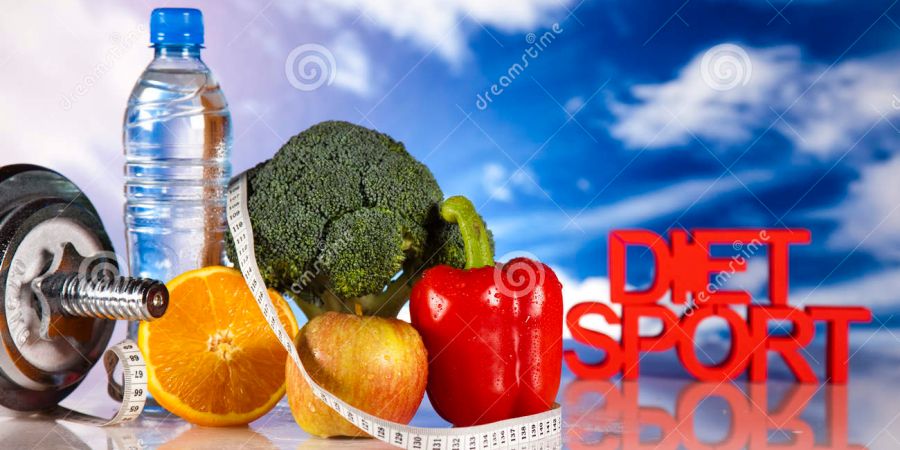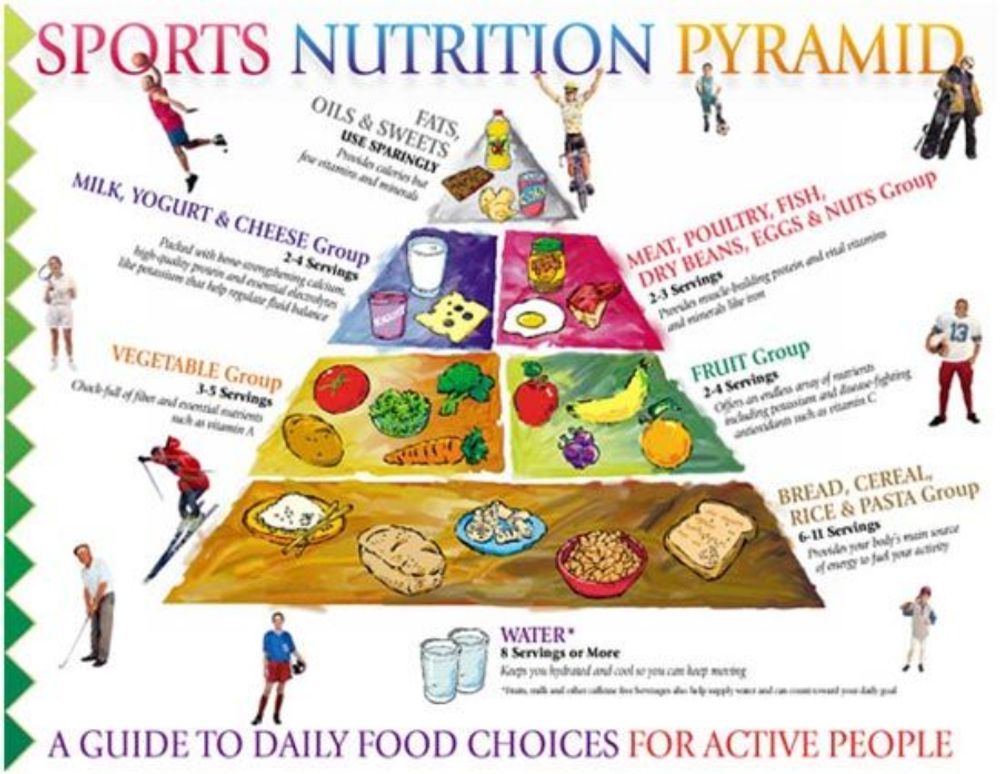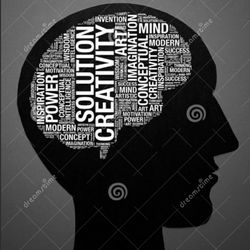

When you're playing sports, you start to think about eating. What time of day should we eat? Is it better to eat before, during, or after physical activity? What should we eat and drink? When is it going to happen? 'How did you do it?' 'What?' or 'What?' What else is there to say? This is what I will explain to you, along with some easy-to-follow advice.
Tip 1: First and foremost, consume your meals at regular intervals.
In reality, eating at a set time allows the body to have a consistent flow of energy. Your body will be able to adjust and handle food digestion more effectively this way.
A diet consisting of a lot of starchy foods and moderate amounts of protein is recommended for maintaining good physical condition. The dinner should be modest in fat as well.
Tip 2: Eat a well-balanced and varied diet
A well-balanced diet will give your body the minerals and vitamins it needs. This is done over numerous meals, not just one. As a result, it is critical to eat breakfast first. From the first meal of the day, the importance of carbohydrate and protein consumption influences the overall course of the day. As a result, if your intakes are too low, your vigilance, focus, and concentration will be impaired. The inadequacies produced by a lack of breakfast will not be compensated by the subsequent meal.
Your body will receive the minerals and vitamins it requires from a healthy, varied, and balanced diet.
For all of your meals, you'll need:

Physical activity expends a significant amount of calories. To maintain the supply of energy, it is vital to eat on a regular basis. Starches, which are high in complex carbs, are a good source of energy.Consume it throughout the day, ideally with each meal, for maximum benefit.
What carbohydrates should you consume?
Simple and complicated carbs are the two forms of carbohydrates. The fast-carb vs. slow-carb misconception should be avoided.It is not advisable to eat white pasta or pizza the day before a competition! When exercising, it's critical to understand how to choose carbohydrates based on their GI and to consume the proper carbohydrates.
Choose and consume the appropriate carbohydrates. Refined carbohydrates, which have a high GI and cause blood sugar increases, should be avoided.
Example of a typical meal :
BREAKFAST
LUNCH TIME
SNACK (4.00 pm)
DINNER
Tip 3: Eat before working out.
It is critical to eat before exercising. This meal will have an immediate effect on your physical abilities. Hypoglycemia can occur if the diet is inadequate. On the other hand, if it is excessively high, it can cause stomach issues. As a result, choose a meal that is both digestible and complete before exercise.
Before leaving, your first priority should be to eat a thoroughly digested energy meal. Avoid butter brioche if you want your food to be digestible. Avoid entire starches since it must give carbohydrates without creating stomach discomfort (wholemeal bread, whole rusks, etc.).
Consume in practise:
An ultra cake is a high-energy, carbohydrate-rich cake that is also easily digested.
a steaming beverage
Earn 3 to 5 dollars💵per day by just clicking the ADs.To know more about it, click below👇
Star-Clicks is an Online Advertising Network

Tip 4: Eat while working out.
During exercise, hydration and nutrition will also play a role in your performance. As a result, failure might result in dehydration and a loss of energy. To compensate for losses, it is consequently critical to drink and eat adequately.
Low-intensity activity: The body pulls little on the stocks during low-intensity effort, such as a bike ride or an hour-long jog. It's not necessary to consume a lot of energy; a granola bar or a gel will suffice.
Medium-intensity efforts: for example, a 2-hour cycling or running trip will require more of your reserves. For every hour of effort, you must provide 30 grammes of carbs. As a result, I recommend that you drink one can of energy drink and consume two granola bars.
High-Intensity Exercise: For high-intensity exercise, such as a marathon, 60 to 90 grammes of carbohydrate per hour should be provided. This equates to two cans of energy drink (2 x 500 ml) or two gels, as well as a can of isotonic liquid.
Tip 5: Recover after your workout.
It is critical to go through the "healing" stage after a tournament or training session. It entails making up for all losses and rejuvenating them.
It's critical to recover after a workout. Within 2 hours of activity, you must rehydrate and, in the case of extended exercise, ingest carbohydrates.
Rehydrate at the end of the outing: following an exertion, the body is in a condition of dehydration that is more or less pronounced yet systematic. The severity of the injury is determined by the effort's intensity and duration, the quality of the drink consumed during the endeavour, and the weather conditions on the day of the endeavour.Sweating during physical exercise results in a loss of water as well as minerals, which must be replaced rapidly. As a result, the first goal of recovery is rehydration.
"Re-sugar" your body: energy stores are logically depleted after a long or intense outing. As a result, they must be reassembled. This needs a carbohydrate intake. It's best if you can do it within two hours of the physical exertion. Carbohydrates come in a variety of forms that we can consume (low or high GI).
Tip 6: Avoid Snacking
Have you recently completed a workout? As a result, don't eat anything! We require the proper nutrition. It would be a pity if you ate your labour and destroyed it. Bad fats should be avoided (saturated fatty acids found in cheeses, creams, butter or pizzas). They have a negative impact on arteries. They lose their suppleness, which reduces blood flow during exercise and increases cardiovascular risks. They also help you acquire weight.
Tip 7: Stay away from alcoholic beverages.
When you're sporty, it's not a good idea to drink alcohol. A gramme of alcohol has 7 kilocalories, which is nearly twice as much as a gramme of sugar. As a result, it appears to be a promising energy source.Unfortunately, these calories can't be utilised to help you build muscle! Worse, alcohol decreases physical abilities, causes dehydration, and inhibits perspiration regulation. It also encourages the development of toxins, putting additional strain on the body's ability to clear them. Only drink water to improve your performance!
Final thoughts
One of the most crucial components in accomplishing your goals and feeling good about your sport is eating healthily during your training or competing times. Food should be an important part of your daily routine. So, if you want to improve your performance, pay attention to what you can and cannot eat. Good nutrition will help you perform better.To do this, follow my advice: eat at regular intervals, eat a nutritious and diverse diet, eat before, during, and after exercise, rehydrate at the end of the effort, and prevent snacking and alcohol consumption.




















